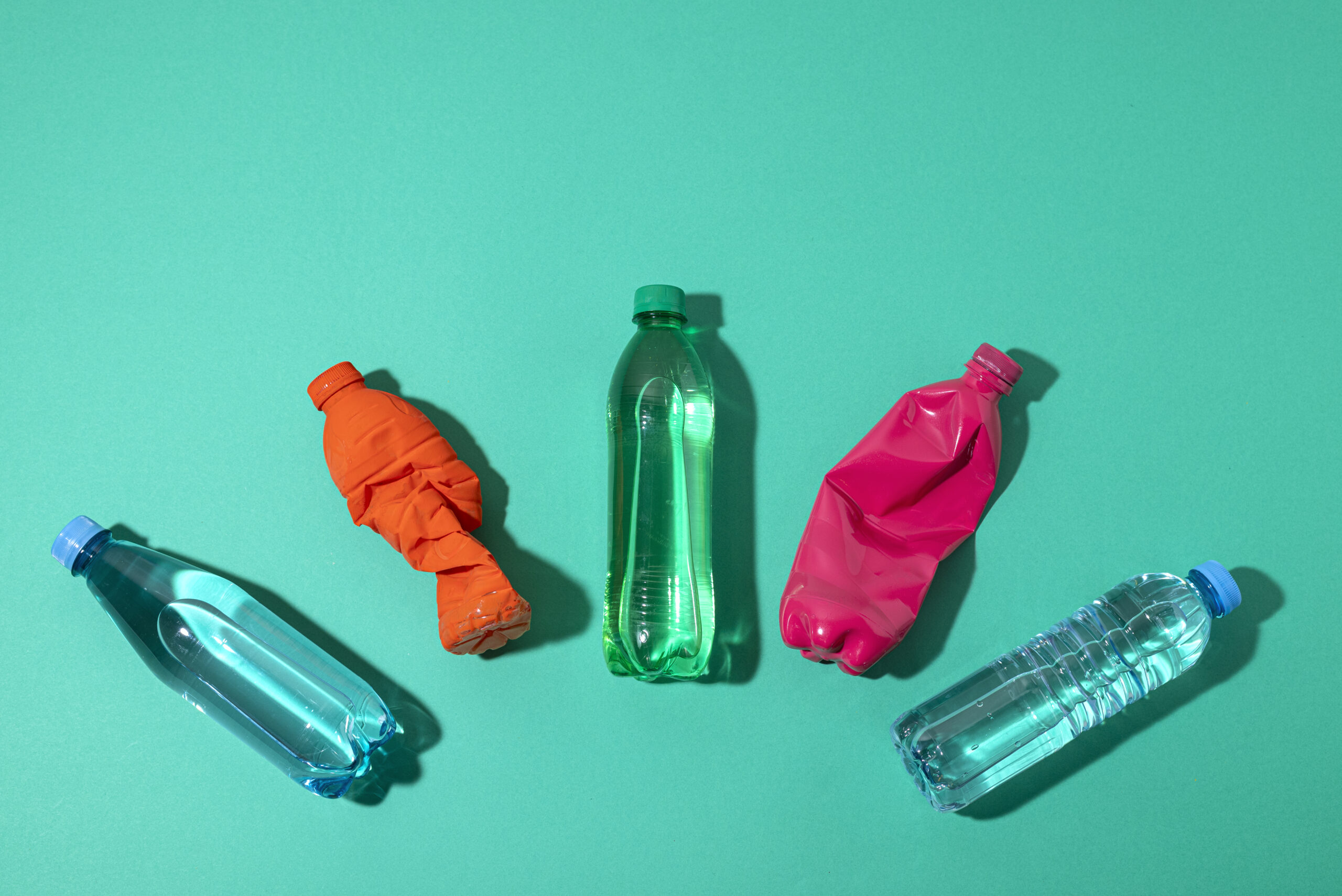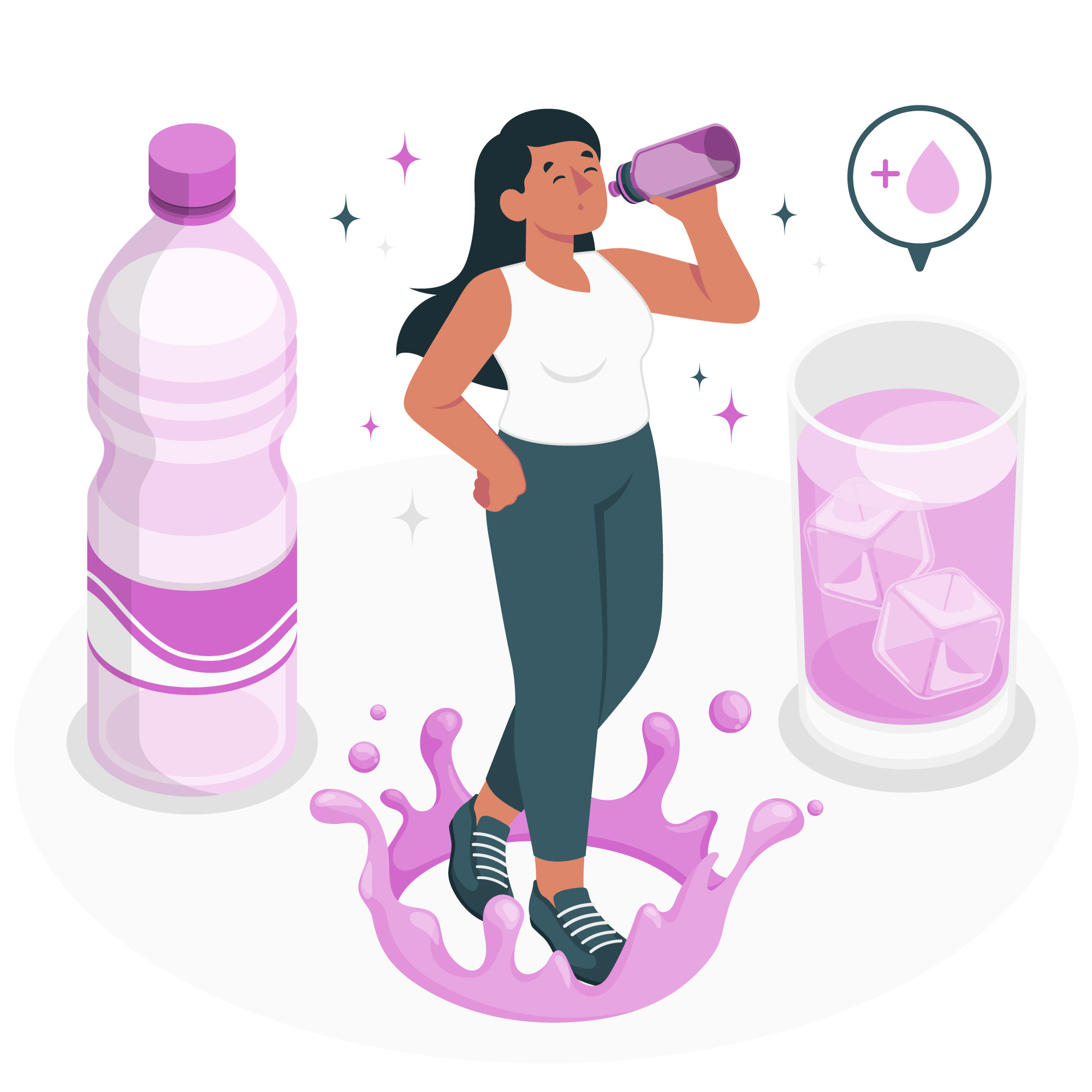
The importance of being appropriately hydrated can sometimes be forgotten, especially when using substances and we’re paying more attention to things like having fun! This post is all about finding that sweet spot of staying hydrated, so we don’t need to overcompensate and risk hyponatremia, or a dangerous loss of electrolytes that can happen when we rehydrate too quickly. <3
Staying hydrated is vital, as water makes up around 50-60% of an adult’s body. Water in our bodies is essential for many things, from our sweat glands, to producing tears and saliva, and aiding in digestion and dental health. When our bodies lack water, it can cause issues for us, sometimes without us even realizing it. The amount of water that we take in should equal the amount we lose. If we take in too little water, dehydration can occur, just as if we take in too much water, overhydration can occur.
Depending on the amount of fluids lost, dehydration can be mild, moderate, or severe. Symptoms of mild to moderate dehydration include irritability, thirst, dry mouth, low urine production, dry skin, headache, muscle cramps, fatigue, and cloudy or dark urine. These are the key things to look out for to help us maintain hydration.
Severe overhydration, on the other hand, is not common but possible. Generally, it’s harder to be overhydrated because kidneys excrete excess water, but what can become a problem is when we’re partying and losing water from dancing, sweating, etc. and we rehydrate too quickly and our electrolyte levels get thrown off. Electrolytes, such as sodium, potassium, magnesium, and calcium, need to be in balance in order to keep our bodies functioning properly. Drinking too much water can cause the electrolyte levels in the body to change. This can lead to hyponatremia, which is when the blood sodium levels go below normal and can be fatal. Sodium is important for proper nerve and muscle function, and electrolytes in general are important for a variety of things such as balancing the body’s acid/base (pH) level, keeping a steady heart rate and rhythm, keeping blood pressure stable, and keeping bones and teeth healthy. Signs of hyponatremia include: nausea & vomiting, headache, confusion, muscle weakness and seizures. Having some on-the-go electrolytes (like sports drinks, Pedialyte, electrolyte powders you can pour into your water or electrolyte gummies) on hand can be useful to keeping those levels balanced, and remember when rehydrating to take a few sips of water every 20-30 minutes rather than chugging full bottles of water!
If we look at specific drugs, we can see how each type of drug can have an effect on the levels of water in our bodies.
Alcohol, caffeine & ketamine, for example, are diuretics, which means it increases the production of urine. This can affect the level of water in our bodies, and help increase dehydration.
- If already in a state of dehydration, the intake of alcohol can worsen the dehydration because our bodies are getting rid of more water than we are taking in. Dehydration is one of the main causes of worse hangovers, which can be related to headaches and throwing up.
Stimulants can cause dehydration due to excess sweating, which is often caused by being very active. Stimulants like cocaine, MDMA & crystal are often popular “party drugs”, which means dancing or having extended party n’ play sessions while under the influence and that can be a big way our bodies lose water due to sweating in big crowds of people.
Opioids can cause constipation, which can be tied to dehydration. Not only that, but being under the influence of opioids can sometimes make it harder for us to know or pay attention to what our bodies need.
Knowing how certain drugs affect our bodies is really important for us to know how to take care of ourselves and be safe!
Another thing to take note of when considering hydration is the outdoor temperature and climate. Depending on what season it is where we’re located, it’s possible that sun exposure can affect the level of water in our bodies. When exposed to the sun for prolonged periods of time at high temperatures, heat cramps, heat exhaustion, and heat stroke are all possible. People affected by homelessness or spending a lot of time outdoors, exposed to the heat and sun, with limited access to water and food, are more vulnerable to overheating and dehydration. Summer is also generally a time that people enjoy partying outdoors, which can allow for people to be more susceptible to dehydration. And this is why harm reduction strategies are so important for us all!
Regardless of whether or not you’re out raving, drinking at the bar with your friends, using casually at home or outdoors, or even sober, remembering to stay hydrated AND keep your electrolyte levels up is important!

The best harm reduction strategies that we can try to do when it comes to ensuring our hydration levels are balanced are:
- Drink water before, during, and after consuming substances
- Consume smaller amounts of water occasionally, rather than chugging all at once
- Use electrolyte tablets/powder/gummies to help replenish what we might have lost
- Eat hydrating food like fresh fruits, veggies or soups if drinking water is less appealing
- In hotter climates, minimize sun and heat exposure when possible
- And use cues such as irritability, dry mouth or cloudy or darker urine as indications that we probably need more water
- Remind our friends to drink water as well! <3
Resources
https://www.hopkinsmedicine.org/health/conditions-and-diseases/dehydration-and-heat-stroke
https://us.humankinetics.com/blogs/excerpt/dehydration-and-hypohydration
https://medlineplus.gov/fluidandelectrolytebalance.html
https://www.gundersenhealth.org/health-wellness/eat/are-you-over-hydrated#:~:text=For%20most%20people%2C%20dehydration%20is,seizures%2C%20unconsciousness%20and%20even%20coma.